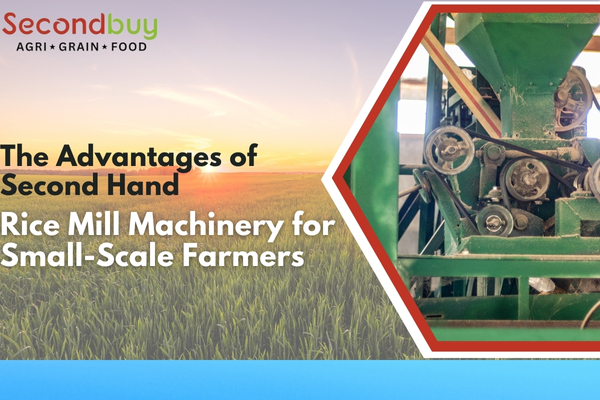The Advantages of Second Hand Rice Mill Machinery for Small-Scale Farmers
When it comes to farming, especially growing rice, small-scale farmers often bump into big hurdles. Why? They've got limited resources and tight budgets. However, new technologies give them more options, even on a budget. Buying Second hand rice mill machinery makes sense. It can boost productivity without costing a fortune. Let's dive into this topic. We'll look at the benefits of getting used rice mill machinery and how it can help small-scale farmers.
Cost-Effectiveness:
One of the most significant advantages of purchasing second hand rice mill machinery is its cost-effectiveness. New machinery can be prohibitively expensive for small-scale farmers, making it difficult for them to invest in modern equipment. Second hand machinery, on the other hand, is often available at a fraction of the cost, allowing farmers to access advanced technology without stretching their budgets.
Reduced Initial Investment:
Choosing used rice mill equipment, tiny farmers can cut down their starting costs. Extra money is then available for other parts of their work, like buying seeds, fertilizers, or getting more hands. With less cost at the start, farmers can begin or grow their rice milling work without much money worry.
Faster Return on Investment:
Since second hand rice mill machinery comes at a lower cost compared to new equipment, farmers can expect a faster return on their investment. With reduced overhead expenses, the revenue generated from milling operations can quickly offset the initial investment, allowing farmers to recoup their expenses and start profiting sooner.
Proven Performance:
There are loads of second hand rice mill machines that have seen good times before. They've worked in real business environments. That's good news for farmers! These machines come with a history of strong performance. That means farmers can rely on the lessons learned from those who have used the machines before to get great results. To top it off, respected sellers usually fix up these second hand machines. They make sure they're in tip-top shape and ready to work for a long, long time.
Flexibility and Adaptability:
Second hand rice mill machinery offers farmers the flexibility to scale their operations according to their needs and budget. They can start with a basic setup and gradually expand or upgrade their equipment as their business grows. This adaptability allows farmers to tailor their milling operations to suit their specific requirements without making a significant upfront investment.
Access to Modern Technology:
Despite being pre-owned, a lot of rice mill machines include up-to-date tech and options. These boost work performance, output, and product grade. Small-sized farmers can use this high-tech to tidy up their work, better rice quality, and stay ahead in the market.
Conclusion:
Second hand rice mill machinery presents a viable and cost-effective solution for small-scale farmers looking to enhance their rice milling operations. By leveraging the advantages of second hand equipment, farmers can overcome budget constraints, increase productivity, and achieve greater profitability in their rice cultivation endeavors. With careful consideration and proper maintenance, second hand machinery can be a valuable asset that contributes to the success and sustainability of small-scale farming operations.

